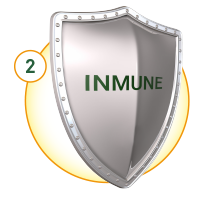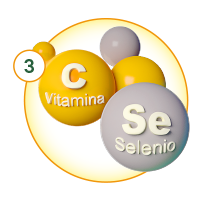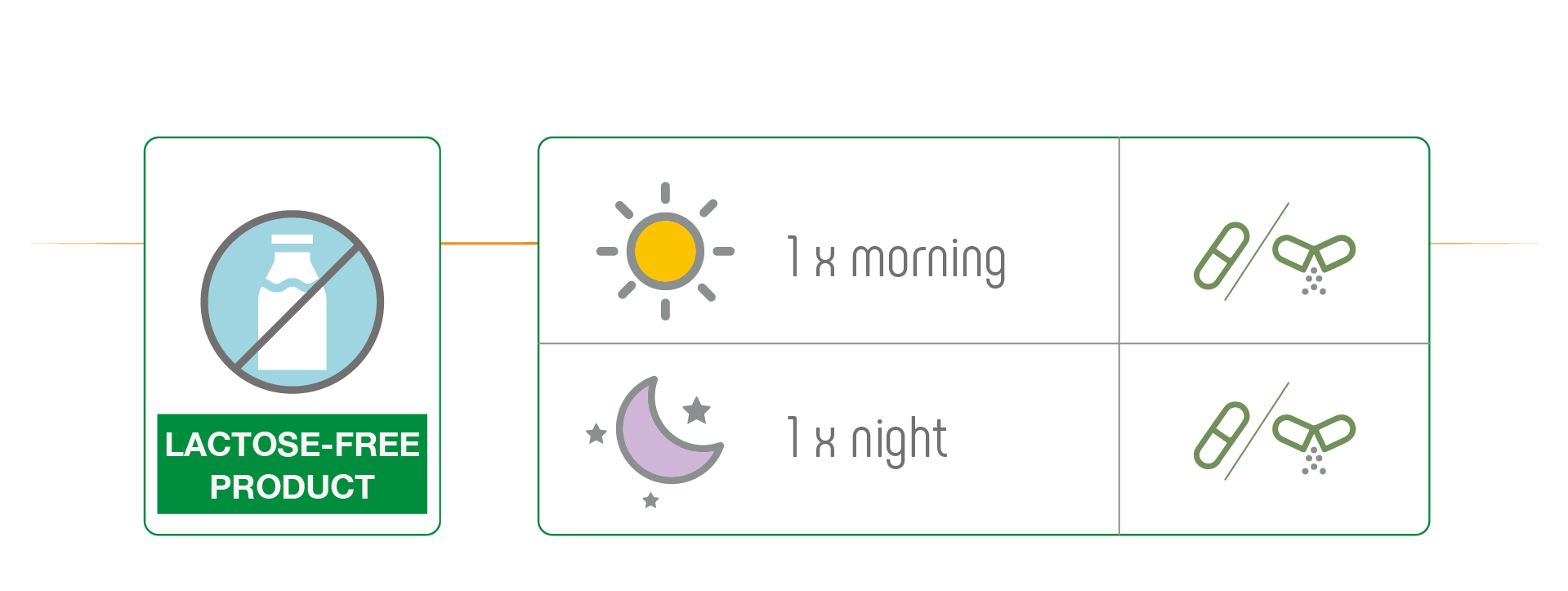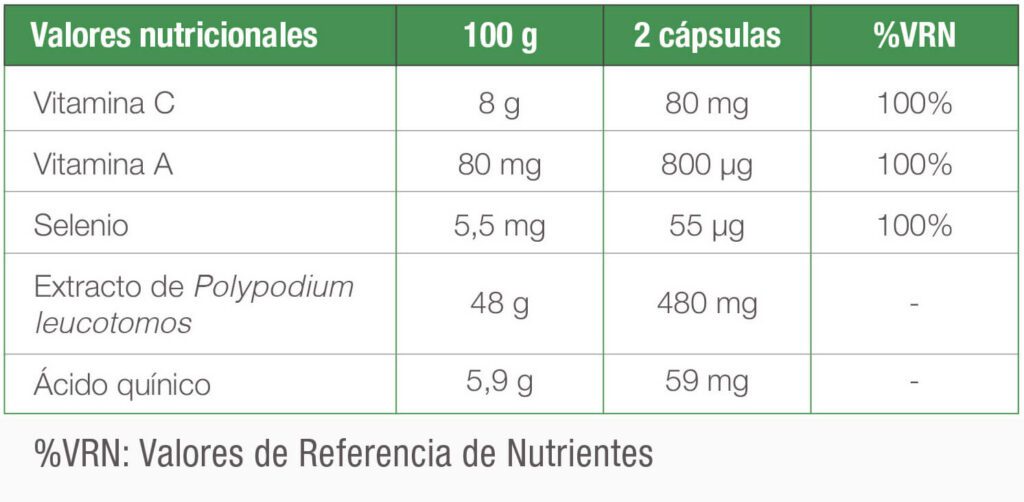Plesinox 3A: triple support for your defences
Plesinox 3A is a dietary supplement formulated with Polypodium leucotomos extract, vitamin A, vitamin C and selenium.
How do you support your defences?
Welcome to the Plesinox 3A website, where we believe that the proper functioning of the immune system is essential for health and well-being.
As a dietary supplement, Plesinox 3A has a unique formulation that harnesses the power of Polypodium leucotomos extract through an exclusive process, providing you with a natural solution to contribute to supporting your immune system.

Benefits of Plesinox 3A
The triple A of Plesinox is because in a single capsule it achieves a triple action to aid your defences:
Supports the normal functioning of the immune system
Plesinox 3A contains a blend of vitamin A, vitamin C and selenium.
Antioxidant protection
Vitamin C and selenium help protect your cells from oxidative damage.
Skin and mucosal health
Vitamin A plays a vital role in maintaining the normal function of the skin and mucous membranes.



What ingredients does Plesinox 3A have and what do they do?
Plesinox 3A is a dietary supplement specially formulated to bolster your defences and enhance your immune system with its four synergistic ingredients:

EPL
EPL
See more
VITAMINS A, C AND SELENIUM
VITAMINS A, C AND SELENIUM
See more
VITAMIN C AND SELENIUM
VITAMIN C AND SELENIUM
See more
VITAMIN A
VITAMIN A
See moreWhat does Plesinox 3A provide in my life?
Plesinox 3A supplies the recommended daily dose of essential nutrients for optimal immune support.
The amount per recommended daily dose is:
Vitamin C: 80 mg (100% NRV)
Vitamin A: 800 µg (100% NRV)
Selenium: 55 µg (100% NRV)
Polypodium leucotomos extract: 480 mg
*NRV: Nutrient Reference Values.

Usage conditions:
Plesinox 3A is a dietary supplement and should not be used as a substitute for a varied, balanced diet and a healthy lifestyle.
Keep out of the reach of children.
Store tightly closed in a cool, dry place.
Nutritional information
The amount per recommended daily dose is:
| Nutritional values | 100 g | 2 capsules | %VRN |
| Vitamin C | 8 g | 80 mg | 100% |
| Vitamin A | 80 mg | 800 μg | 100% |
| Selenium | 5,5 mg | 55 μg | 100% |
| Polypodium leucotomos extract | 48 g | 480 mg | – |
| Ácido quínico | 5,9 g | 59 mg | – |
%VRN: Valores de referencia de nutrientes.
Nutritional information:
Plesinox 3A supplies the recommended daily dose of essential nutrients for optimal immune support.
The amount per recommended daily dose is:
Vitamin C: 80 mg (100% NRV)
Vitamin A: 800 µg (100% NRV)
Selenium: 55 µg (100% NRV)
Polypodium leucotomos extract: 480 mg
*NRV: Nutrient Reference Values.

Usage conditions
- Do not exceed the recommended daily dose.
- Plesinox 3A is a dietary supplement and should not be used as a substitute for a varied, balanced diet and a healthy lifestyle.
- Keep out of the reach of children.
- Store tightly closed in a cool, dry place.
Want to keep your immune system
in perfect working order?
Stay informed and up-to-date with our blog section!
Discover tips and advice to maintain a strong immune system, even during the winter months, from nutrition to lifestyle habits. Here you will find various tips and insights to help you protect yourself and stay healthy.

The perfect month to regain your balance
After the most intense weeks of winter and the start of the year, February is a good time to reconnect with our routine and pay attention to how we feel. It’s not about making major changes, but rather gradually returning

A new year to take better care of yourself
The beginning of a new year always invites reflection and encourages us to make small changes that help us feel better in our day-to-day lives. Beyond major resolutions, the important thing is to adopt simple habits that we can maintain

How to take care of your immune system during the holidays
December is a month full of gatherings, special meals, and activities that take us out of our routine. Enjoying the holidays also means taking care of your daily habits to help your immune system function normally. In this post, we